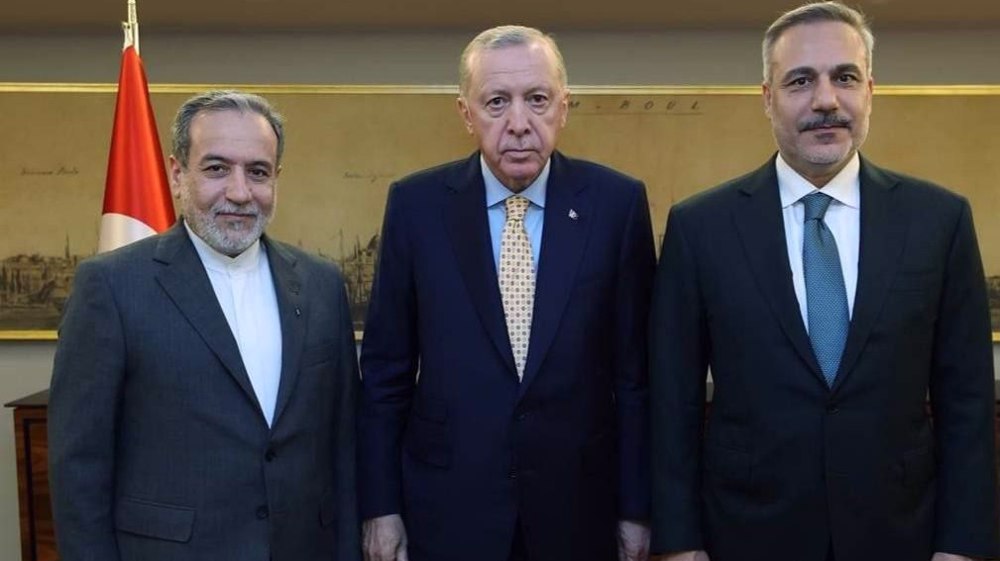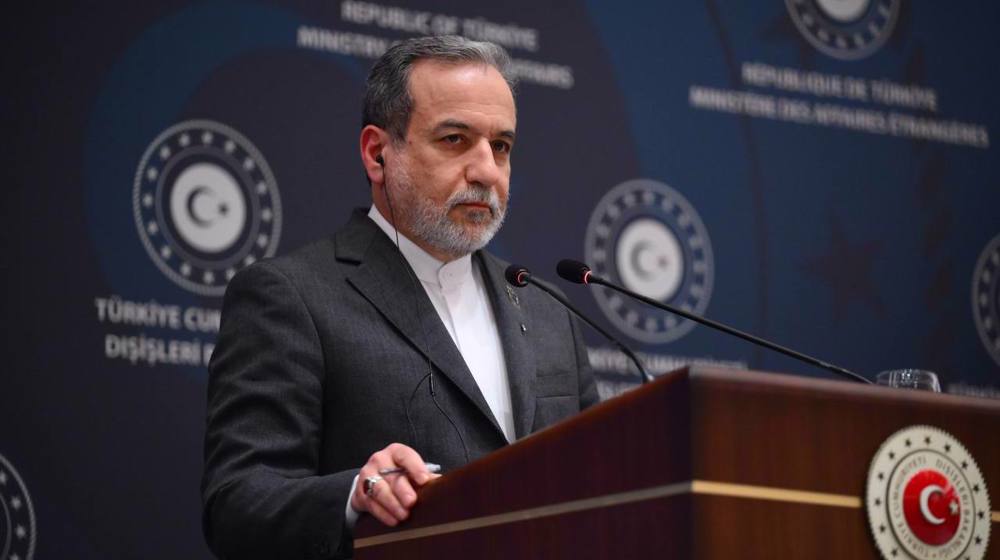Turkey to retaliate if US imposes sanctions over S-400 missile systems: FM
Turkish Foreign Minister Mevlut Cavusoglu says his country will take retaliatory measures in case the United States imposes sanctions on Ankara over its acquisition of advanced Russian-made S-400 missile defense systems.
“If the United States portrays an adversarial attitude towards us, we will take retaliatory measures, as we've told them. This is not a threat or a bluff,” Cavusoglu told private Turkish-language TGRT Haber television news network in an exclusive interview on Monday.
“We are not a country that will bow down to those who show an animosity towards Turkey,” he pointed out.
Cavusoglu added that he did not expect the US administration to take such an action.
The top Turkish diplomat further noted that partners in the F-35 fighter jet program do not agree with US decision to suspend Turkey from the plan.
The administration of US President Donald Trump had threatened to expel Turkey from the F-35 fighter program if it acquired the S-400 from Russia.
Last week, the US announced that it was beginning the process of removing Turkey, part of the manufacturing supply chain for the advanced aircraft, from the program.
Cavusoglu said on Monday that Turkey will meet its defense needs elsewhere if Washington does not provide Ankara with the fifth-generation and multirole combat aircraft.
He underscored that the batteries of the S-400 missile system, which have recently arrived in Turkey, will become operational early next year.
Russia, Turkey in talks on joint production of S-400 missile parts
Meanwhile, Sergei Chemezov, the head of Russia's industrial conglomerate Rostec, said on Monday that Moscow and Ankara are in talks about the possibility of jointly manufacturing some components of the S-400 missile defense system in Turkey.
“Moscow and Ankara are holding consultations in the area of the licensed production of the S-400 air defense system component parts,” Turkey's official Anadolu news agency quoted Chemezov as saying.
“Besides, Turkey is interested in the latest Russian combat modules, air defense systems of various ranges, as well as anti-tank systems. Negotiations are underway for Russia to help the Republic of Turkey in creating its national air defense and long-range missile defense systems,” he said.
Chemezov added that Russia was prepared for various formats of technological cooperation, including in high-tech areas such as the aerospace industry, helicopter construction, and energy.
Turkey began receiving deliveries of the surface-to-air S-400 systems on June 12. Fourteen shipments of related equipment have landed in Turkey so far, and the deliveries are set to continue through April 2020.
The White House said on July 17 that it was no longer possible for Turkey to be involved in the program for the F-35 stealth jets after parts of S-400 began arriving in Ankara.
It also said it would impose sanctions on Turkey under the Countering America's Adversaries Through Sanctions Act (CAATSA).
The US Congress passed the CAATSA against Russia in August 2017 over allegations of interfering in the 2016 presidential election. The law, among other things, imposes sanctions on countries and companies that engage in contracts to purchase weaponry from Russia.
Moscow and Ankara finalized an agreement on the delivery of the S-400 in December 2017.
Back in April 2018, Turkish President Recep Tayyip Erdogan and his Russian counterpart Vladimir Putin said in Ankara that they had agreed to expedite the delivery of the S-400. At the time, it was said that the delivery could be made between late 2019 and early 2020.
A number of the North Atlantic Treaty Organization (NATO) member states have criticized Turkey for purchase of the S-400, arguing the missile batteries are not compatible with those of the military alliance.
They also argue that the purchase could jeopardize Ankara’s acquisition of F-35 fighter jets and possibly result in US sanctions.
The S-400 is an advanced Russian missile system designed to detect, track, and destroy planes, drones, or missiles as far as 402 kilometers away. It has previously been sold only to China and India.
Ankara is striving to boost its air defense, particularly after Washington decided in 2015 to withdraw its Patriot surface-to-air missile system from Turkish border with Syria, a move that weakened Turkey’s air defense.
Before gravitating towards Russia, the Turkish military reportedly walked out of a $3.4-billion contract for a similar Chinese system. The withdrawal took place under purported pressure from Washington.
Iran received no concrete US proposal in Oman talks: Security chief
Nouri al-Maliki defends Hashd al-Shaabi as inseparable part of Iraqi security system
British PM Keir Starmer faces calls to resign
Iran’s Kowsar satellite beams Islamic Revolution anniversary message across region
VIDEO | Press TV's news headlines
VIDEO | Indian regions celebrate Iran’s Islamic Revolution anniversary
Iran’s missile program will never be on negotiating table: Shamkhani
Hezbollah: 47 years of Iranian progress proof of ‘abject failure’ of Western plots























 This makes it easy to access the Press TV website
This makes it easy to access the Press TV website